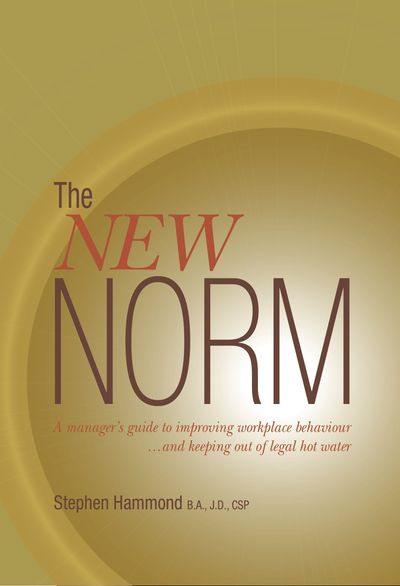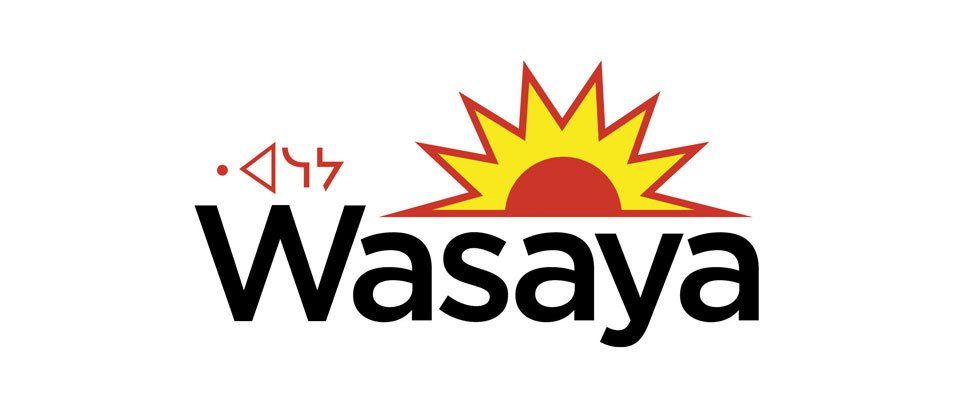Chapter nineteen
THE NEW NORM knows misuse of social media even outside of work is risky
Airline pilot John Wyndels worked for Wasaya Airways, a Canadian company owned by a number of First Nations, with clientele approximately ninety percent First Nations. Management of the airline discovered remarks on Wyndels’ Facebook page that they considered “shocking and appalling.”
Although the content of the posting wasn’t revealed, it began with the phrase, “You know you fly in the north when…” Wyndels never mentioned his employer, there was no indication who he worked for and none of the postings were done on company time.
In a termination letter to Wyndels, the chief pilot of the company wrote, “You have publicly degraded and belittled the customers we serve, who are also the proud owners of this airline.”
While Wyndels’ union agreed his Facebook postings were inappropriate and deserving of discipline, they said termination of employment was going too far, especially since he took down the postings and apologized for his actions.
It was also pointed out that when another company pilot responded to Wyndels’ post with a disparaging remark, he was suspended for only one day. And when a company manager was caught with an anti-union message on his website stating, “Unions are killers of aboriginal business,” he was given no discipline at all. Nevertheless, Wyndels was fired and the matter went to binding arbitration.
Clearly, humour is very personal, with one person laughing and another offended. For example, Wyndels’ wife, who is First Nations, wrote “LOL” after reading the post. But the airline’s owners and management didn’t see it that way. Chief Pilot Donovan Macklin wrote that he found the comments “scurrilous.”
Not only did the content truly upset the company, but it also raised concerns that if its clientele took offence, it would cost them business. Their clients might say, “Pilot Wyndels can’t fly into our community” or “Why would we do business with a company that employs a guy like that?”
And yet, without any economic harm presented, the arbitrator noted Wyndels’ off-duty misconduct “does create potential harm to the Company's reputation and its ability to efficiently manage its business.”
It's clear that this pilot could have greatly benefited from taking my Respectful Workplace online course, where we spell out the perils of racial discrimination even when it’s just meant as humour. He would have learned that social media wording can lead to a toxic workplace.
How can a company dictate what an employee posts outside work, when there are no comments about the company, no pictures of him in uniform, no mention of his workplace, and the posts were not done on work time?
This is the dilemma with social media: When can you make a connection between an employee and his job? It appears the connection will be made when there’s a chance the posts can seriously harm the reputation of the workplace. Let’s face it, even though Wyndels didn’t mention who he worked for, it wouldn’t take a genius to type “Wyndels” into a search engine or social media site and start putting two and two together.
The company had explicit policies governing their code of ethics; “First Nations values” and their “guiding principles” stated the importance of respect for First Nations people and their elders. The arbitrator found Wyndels’ posts to be a serious breach of those values.
There’s no indication John Wyndels is a bad person, nor did he have bad intentions when it came to his posts. The arbitrator wrote, “I find the grievor's misconduct is but a single incident of statements with racial overtones which seems out of character with his personal circumstances, thereby leading me to conclude he is not a racist.”
He also wrote, “I find that, while the grievor's remarks breach human rights legislation, I accept, by way of his letter of apology, that he did not intend to so breach the legislation.”
In the end, even though the arbitrator found the company inconsistent with the way it handed out discipline, and even though he found termination of employment in this circumstance “excessive,” he found Wyndels’ continued employment “untenable.”
In a rather creative way, he ruled that John Wyndels receive four months’ pay and resign from the company effective two weeks prior to the decision, and that the company must remove his letter of dismissal from his employment record. A slight consolation, but no job back.
The OLD NORM
- posts whatever he wants to on social media, even outside of work.
- thinks it is fair game to post jokes or risky comments, as long as she doesn’t mention her job or employer.
- doesn’t think about the wider implications of information being spread on social media.
- doesn’t think anyone has to adapt to the workplace and clientele around them.
- hopes people will forgive him because he doesn’t intend any harm.
The NEW NORM
- never misuses social media nor creates a connection to the workplace.
- gives serious thought about engaging in provocative discussions on social media.
- realizes that others, including the employer or future employer, can access social media information.
- understands that some of what she writes or says on social media might have an impact, not just on her job, but on the reputation of her employer.
Suggestions for the New Norm:
01
Be very careful what you post. Not every case ends up like this. In fact the arbitrator gave John Wyndels some consolation, with four months’ pay, an opportunity to resign rather than be fired (no choice) and his discipline letter removed from his file, but it wasn’t enough to save his job. If I was a betting person, I’d bet Wyndels learned from this mistake and won’t repeat it. But it’s a very tough lesson to learn when he thought his post was a joke and there was no direct reference to his job. Post what you want, but be very careful.
02
Pay attention to workplace policies. Workplaces that have, educate and reinforce strong and clear company policies have a greater chance of upholding tough discipline. Without the latter, many employees pay little or no attention. If there’s any uncertainty about what a policy means, ask about the practical implications to you.
03
Reinforce Web-savviness at work. This is worth repeating. Social media ain’t going away, so it never hurts to educate and re-educate employees about its potential harm. If employees feel they can say anything as long as it they don’t mention their work or a direct connection, let them know that’s not true.
This chapter lets you know
many people are getting into big trouble with sexist and racist social media posts. For examples of other problems related to social media, consider reading
Chapter 18: The New Norm won’t misuse social media while working.
Purchase a copy of The New Norm, or if you think all your supervisors and managers, could learn many valuable lessons about creating a respectful workplace, free of harassment, bullying and discrimination, you can get volume discounts.
What one reader has to say about Stephen’s book, The New Norm
“Stephen Hammond’s book, ‘The New Norm’ is easy to follow and full of common sense. I loved the real case examples, older ones that stand the test of time and new ones that are relevant in the ever-changing landscape of the work environment. He categorizes behaviour as it was and as it should be - what every employer should strive for.”
Jackie Gruber, Human Rights and Conflict Management Officer
University of Manitoba
Respectful Workplace Online Training Course
If you, your employees or your managers want more information,
sign up for my new online training course:
The Respectful Workplace in Canada.
With 10 modules of useful, relevant and current information,
this course can help everyone at your workplace.
This may be the best online harassment training your people will get.
Stephen Hammond is a lawyer turned speaker and consultant in the field of harassment, sexual harassment, bullying and discrimination at work.
The New Norm is Stephen’s third book.
Here’s more information about Stephen.



